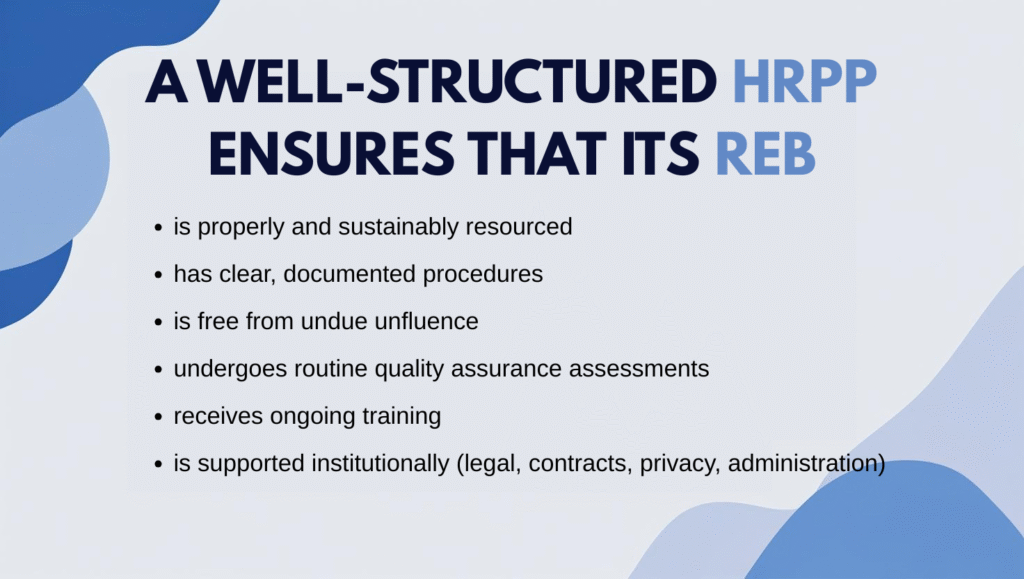FAQs
A Human Research Protection Program (HRPP) is an organization-wide program composed of a network of interdependent entities that share the responsibility for Research Participant protection and interact in a system that promotes a culture of research integrity, quality, efficiency, accountability and evidenced-based practices. An HRPP can exist in any for-profit or not-for-profit, public or private organization where human research is conducted and/or overseen.
The HRPP is the overarching institutional system that ensures the ethical conduct of research involving humans. It encompasses far more than just the Research Ethics Board (REB), and it’s where the concepts of institutional authority and accountability are operationalized and sustained.
Without an HRPP, responsibility for research participant protection defaults entirely to the REB – which was never designed to carry that responsibility alone. This creates a vacuum where the REB is left to train itself, monitor its own performance, and assume institutional duties, often without the necessary infrastructure or independence. That’s not just unsustainable – it creates potential conflicts of interest and undermines credibility.
Research participant protection is a shared responsibility. When institutions develop and maintain their HRPPs, REBs can focus on what they’re meant to do: ensure the protection of research participants through rigorous, independent ethics review.

